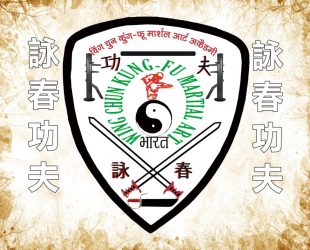Wing Chun, the martial art famously associated with the legendary Ip Man, transcends time and space, remaining as relevant and effective in the modern world as it was centuries ago. In a society characterised by rapid technological advancements and evolving combat techniques, Wing Chun stands out as a timeless and adaptable martial art. Let’s explore how Ip Man’s Wing Chun embodies modernity in its principles, techniques, and philosophy. Adaptive Techniques for Modern Combat Ip Man’s Wing Chun is renowned for its practicality and efficiency in real-world combat situations. Its emphasis on close-range fighting, rapid strikes, and simultaneous defense and offense makes it highly effective for self-defense in today’s urban environments. In a world where conflicts can arise unexpectedly and violence can escalate rapidly, Wing Chun equips practitioners with the tools to neutralize threats efficiently and decisively. Integration of Science and Tradition While rooted in centuries-old Chinese martial arts traditions, Wing Chun is not bound by antiquated techniques. Ip Man himself was known for his willingness to adapt and innovate, integrating insights from other martial arts and disciplines into Wing Chun. Today, practitioners continue this tradition by incorporating modern training methods, biomechanical principles, and scientific research into their practice. This fusion of tradition and innovation ensures that Wing Chun remains effective and relevant in a rapidly changing world. Mindful Movement and Body Awareness In an era where stress and distractions abound, the practice of Wing Chun offers a sanctuary of mindfulness and focus. Through its precise and deliberate movements, practitioners develop heightened body awareness, coordination, and concentration. This mental clarity not only enhances combat effectiveness but also carries over into everyday life, enabling practitioners to navigate challenges with calmness and resilience. Community and Camaraderie in a Digital Age In an increasingly digital and disconnected world, Wing Chun provides a sense of community and camaraderie that is vital for personal growth and well-being. Training in a supportive and inclusive environment fosters friendships, mutual respect, and a shared commitment to self-improvement. Whether in traditional martial arts schools or modern online communities, practitioners of Ip Man’s Wing Chun find solidarity and encouragement in their journey of mastery. Ethical Values in an Ethically Complex World Beyond its physical techniques, Wing Chun cultivates ethical values such as respect, humility, and integrity. In a world plagued by conflict, division, and moral ambiguity, these values serve as guiding principles for practitioners both on and off the training mat. By embodying the spirit of Ip Man’s legacy, Wing Chun practitioners contribute to building a more compassionate and harmonious society.
Summary of article : Ip Man’s Wing Chun is more than just a martial art; it is a living tradition that continues to evolve and thrive in the modern world. Its adaptability, effectiveness, and timeless principles make it a valuable asset for individuals seeking personal empowerment, physical fitness, and spiritual growth. As we navigate the complexities of the 21st century, the wisdom of Wing Chun offers a beacon of light, guiding us towards strength, resilience, and inner peace.
Sifu Dr. Sonu Kumar Giri,
Principal Instructor, Wingchun Academy, Mumbai

